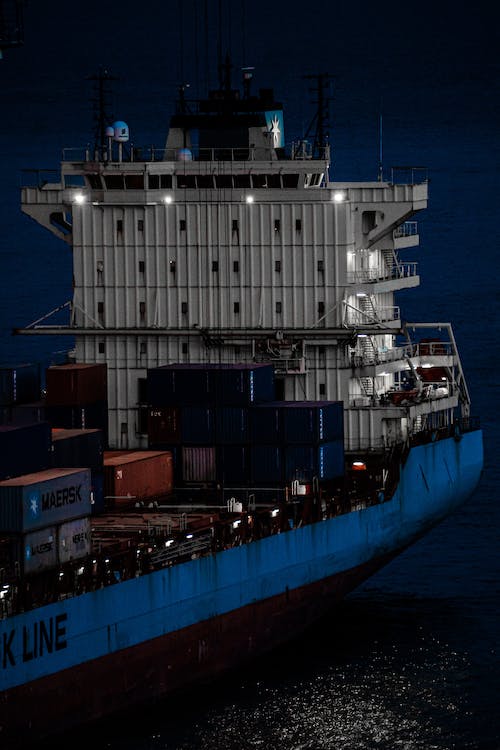
Contacts
The participants, all active European industry practitioners, discussed in particular the impact of sanctions on the maritime industry directly, but also on financial institutions and insurers, such as P&I Clubs.
The discussion highlighted the difficulty for the maritime industry players to adapt to the constantly changing regulations in general and sanctions in particular. It should be recalled that the sanctions currently in place against Russia are without precedent – indeed, the 11th package of sanctions, under preparation, is expected later this month. In comparison, following the Crimea joining the Russian Federation in 2014, only two sanctions packages were introduced by the European authorities.
The nature of these new sanctions should also be underlined – as they are not “classical” sanctions, in the sense that it is not sufficient to check whether a particular individual is sanctioned and listed. The onus is now on the industry actors to research the background and identify who is really at the helm.
As we know, these new sanctions affect different sectors, including import and export bans. In the maritime sector, all associated services, such as insurance, brokering, technical assistance are also targeted. Oil ban and oil cap price, coordinated with G7 partners also had a huge impact on maritime transport.
There is clearly a concern on the part of the shipowners that a mistake in the compliance procedure – even a genuine one – could be fatal to the business. Shipowners are nowadays required to proceed to a thorough examination before undertaking any voyage.
As part of the due diligence process, maritime industry players must make enquiries to satisfy themselves as to whether a particular trade or shipment will expose them to the risk of breaching sanctions. This will, inter alia, include:
- identifying which sanctions regimes apply to a transaction (which includes considering the country of loading, transit, transshipment and discharge);
- investigating whether the particular trade, voyage or operation is subject to any prohibitions or restrictions;
- reviewing whether any of the parties involved, e.g. owners, charterers, sub-charterers, cargo interests (e.g. shippers, receivers, consignees, buyers and sellers), port operators, bunker suppliers or local agents, etc. are named on the relevant sanctions list(s) or are owned and/or controlled by entities named on the sanctions list(s).
Under most EU sanctions, there is a defence if you did not know or had no reasonable cause to suspect that your actions had caused a breach of the sanctions. This means that if appropriate due diligence has been undertaken, and no suspicion has been reasonably aroused, then no offence has been committed even if it turns out that there has been an infringement. But what constitutes appropriate due diligence will depend on the particular facts of the case.
Another consequence of the sanctions is the flagging of the ships, which is of utmost importance for shipping industry players, since many Russian vessels and shipowners used the Malta Flag. The big news is that the Malta Ship Registry is now screening parties, especially the buyers of the vessels, which was not the case before the introduction of the sanctions.
While this contributes to sanctions compliance and increases monitoring, actors of the shipping industry are concerned, as it has caused Russian vessels to leave the Malta Ship Registry, with the result that the Maltese maritime market has been significantly reduced, causing an impressive decrease of business operations. Bunkering operations constitute a significant part of Malta’s revenue and tampering with these services adversely affects the country financially.
Also given the complexity of the sanctions, legal advice costs are soaring, pushing a large proportion of operators to choose alternative jurisdictions – flagging and reflagging activities are shifted outside of the EU countries.
Therefore, shipping industry actors are even questioning whether the sanctions are causing more damage to European interests than they actually affect the Russian economy. Uncertainty is floating, the cargo is still moving – but it’s moving somewhere else.
The sanctions application is further complicated by the fact that the EU sanctions rules are interpreted differently across jurisdictions. One of the challenges is therefore also to establish a common understanding of these sanctions.
Given that the EU attaches importance to eradicating the circumvention and evasion of sanctions, additional measures in respect to the maritime industry can be expected in the 11th sanctions package.
The discussion concluded with the following observations: the sanctions are well in place and aren’t going anywhere in the foreseeable future. Shipping companies will have to deal with it one way or another, and companies who will do best are those with robust compliance teams.
If you would like to find out more about this topic or would like to request consultation, please contact us!
Sanctions
Against the backdrop of recent international developments, particularly those related to Ukraine and Russia, complex economic sanctions and new rules governing relations with sanctioned countries and their citizens continue to evolve. Asset freezes, commercial bans, airspace closures, and individuals falling under personal sanctions are all changing rapidly in response to foreign policy developments.

